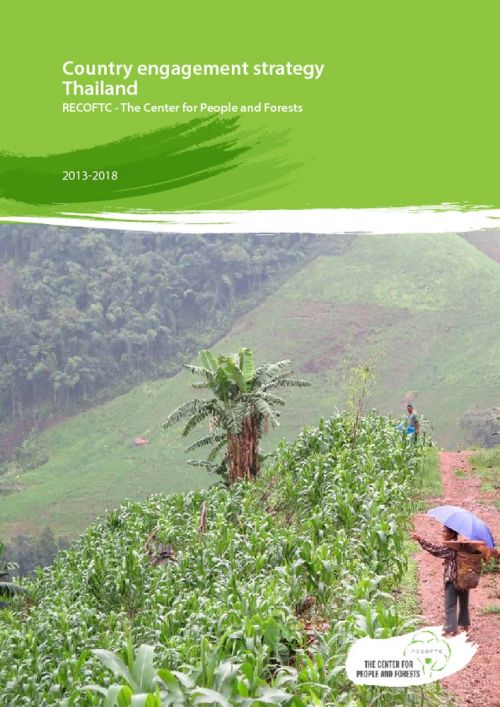APA 6th ed. RECOFTC Country Engagement Strategy - Thailand. (2015, November 1). Retrieved from https://www.recoftc.org/publications/0000143
MLA 8th ed. RECOFTC Country Engagement Strategy - Thailand. RECOFTC, 1 November 2015, https://www.recoftc.org/publications/0000143.
Chicago 17th ed. RECOFTC. 2015. "RECOFTC Country Engagement Strategy - Thailand." Published November 1, 2015. https://www.recoftc.org/publications/0000143.
RECOFTC Country Engagement Strategy - Thailand

Thirty-seven percent of Thailand’s land area of 51 million ha or 19 million ha is covered by forest. Half of Thailand’s 67 million population lives in rural areas, with members of many rural families working in cities or in other off-farm income-generating activities. It is estimated that about 20 percent of Thailand’s villages (12 million people) are located within forest reserve areas. However, Thai state forestry, until relatively recently, focused overwhelmingly on extracting timber and keeping local people away from forests. The recent Constitutions of B.E. 2550 (2007) and B.E. 2540 (1997) and decentralization legislation provide a legal basis for the involvement of communities in the management of natural resources.
One in a series of RECOFTC country engagement strategies, this publication analyses the community forestry (CF) situation and challenges in Thailand, and recommends priorities for the country’s CF development. Adhering to RECOFTC's vision and mission, the report presents the organization’s strategic programme framework and how RECOFTC in Thailand can effectively contribute to the advancement of CF in the country.

